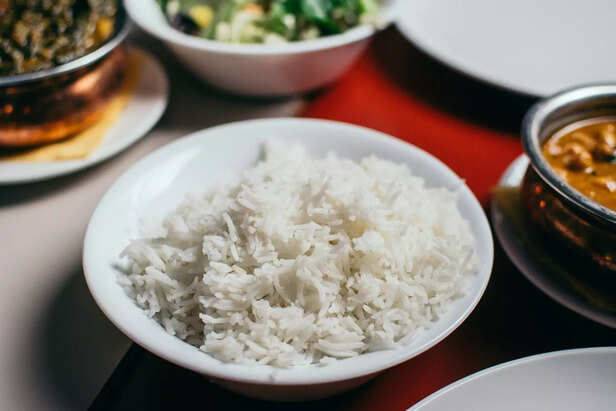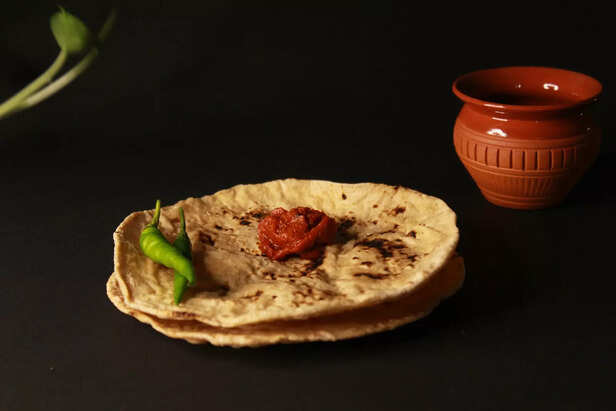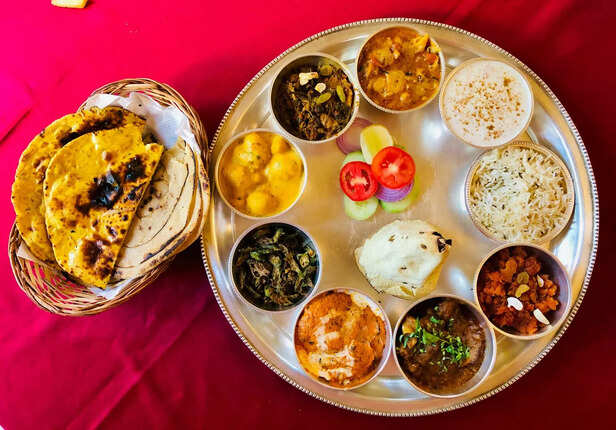Roti vs Rice at Night: Your Stomach Knows Which One Wins
Annanya Saxena | Sep 23, 2025, 13:37 IST
Rice or Roti?
( Image credit : Freepik )
Should you eat roti or rice at night? The answer depends on your digestion and lifestyle. Roti made from whole wheat gives sustained energy but may feel heavy before sleep. Rice digests quickly, reducing strain on the stomach, yet can spike blood sugar. Understanding these differences helps you choose wisely. This article explains how roti and rice affect your gut, metabolism, and sleep quality, guiding you to the better option for a healthy dinner.
Your dinner choice between roti and rice affects sleep quality plus digestion plus morning energy levels more than most people realize. Both staples have unique properties that impact how your body processes food during nighttime hours. Research shows complex carbs found in whole wheat rotis provide sustained energy release while rice offers quick digestion making the choice depend on individual needs. Your personal digestive system plus activity level plus health goals determine which option works better for nighttime meals.

White rice breaks down faster in your digestive system making it gentler on stomachs during evening hours. The simple carb structure requires less energy to process allowing your body to focus on repair plus recovery during sleep instead of heavy digestion work.

Whole wheat rotis contain complex carbs plus fiber that release energy slowly throughout the night. This steady fuel supply helps maintain stable blood sugar levels preventing middle-of-night hunger pangs that disrupt sleep quality.
The fiber content in rotis promotes healthy digestion plus regular bowel movements while providing feeling of fullness that lasts longer. This makes rotis better choice for people trying to maintain weight plus control late-night cravings.

Active individuals who exercise regularly benefit more from rotis because complex carbs fuel muscle recovery during sleep. Athletes plus gym-goers plus people with physical jobs need sustained energy that whole wheat provides throughout rest periods.
Sedentary individuals plus desk workers plus people with slower metabolism often digest rice better at night. Quick-digesting carbs work well when you don't need sustained energy during inactive evening hours.

The amount you eat affects digestion more than whether you choose roti or rice for dinner. Large portions of either option strain your digestive system plus interfere with sleep quality plus cause morning bloating.
Two small rotis or one cup cooked rice with vegetables plus protein creates balanced dinner that digests well. Eating smaller portions allows better nutrient absorption plus prevents overnight digestive stress.
Traditional Indian meals combine both roti and rice with various curries plus vegetables plus lentils creating balanced nutrition. Your grandmother's wisdom of eating lighter dinners plus seasonal choices plus proper timing still works best for modern lifestyles.
Choose based on what makes your body feel good rather than following rigid rules. Some people thrive on rice dinners while others sleep better after roti meals. Listen to your digestive system plus energy levels plus morning comfort to find your perfect match.
Your optimal dinner choice depends on personal digestion patterns plus activity levels plus health goals rather than universal rules about which grain reigns supreme for nighttime eating.
Explore the latest trends and tips in Health & Fitness, Spiritual, Travel, Life Hacks, Trending, Fashion & Beauty, and Relationships at Times Life!
Rice Wins the Quick Digestion Race

Steamed rice
( Image credit : Unsplash )
White rice breaks down faster in your digestive system making it gentler on stomachs during evening hours. The simple carb structure requires less energy to process allowing your body to focus on repair plus recovery during sleep instead of heavy digestion work.
Rice digestion advantages:
- Breaks down quickly without taxing digestive system overnight
- Gentle on sensitive stomachs plus reduces bloating issues
- Provides quick energy that doesn't interfere with sleep patterns
- Less likely to cause acid reflux when lying down after meals
Roti Provides Steady Overnight Energy

Cooked roti
( Image credit : Unsplash )
Whole wheat rotis contain complex carbs plus fiber that release energy slowly throughout the night. This steady fuel supply helps maintain stable blood sugar levels preventing middle-of-night hunger pangs that disrupt sleep quality.
The fiber content in rotis promotes healthy digestion plus regular bowel movements while providing feeling of fullness that lasts longer. This makes rotis better choice for people trying to maintain weight plus control late-night cravings.
Roti nutrition benefits:
- Complex carbs provide sustained energy release during sleep
- Higher fiber content promotes healthy digestive function
- Keeps you fuller longer preventing midnight snacking
- Better protein content supports overnight muscle repair
Your Body Type Decides the Winner

Healthy lifestyle
( Image credit : Unsplash )
Active individuals who exercise regularly benefit more from rotis because complex carbs fuel muscle recovery during sleep. Athletes plus gym-goers plus people with physical jobs need sustained energy that whole wheat provides throughout rest periods.
Sedentary individuals plus desk workers plus people with slower metabolism often digest rice better at night. Quick-digesting carbs work well when you don't need sustained energy during inactive evening hours.
Choosing based on lifestyle:
- Active people need complex carbs from rotis for muscle recovery
- Sedentary individuals digest simple rice carbs more easily
- People with diabetes benefit from roti's slower sugar release
- Those with digestive issues find rice gentler on stomach
Portion Size Matters More Than Choice

Balanced dinner
( Image credit : Unsplash )
The amount you eat affects digestion more than whether you choose roti or rice for dinner. Large portions of either option strain your digestive system plus interfere with sleep quality plus cause morning bloating.
Two small rotis or one cup cooked rice with vegetables plus protein creates balanced dinner that digests well. Eating smaller portions allows better nutrient absorption plus prevents overnight digestive stress.
Smart portion guidelines:
- Two medium rotis or one cup cooked rice maximum
- Fill half plate with vegetables for fiber plus nutrients
- Add protein source like dal lentils or paneer for balance
- Stop eating three hours before bedtime for better digestion
The Smart Indian Kitchen Approach
Choose based on what makes your body feel good rather than following rigid rules. Some people thrive on rice dinners while others sleep better after roti meals. Listen to your digestive system plus energy levels plus morning comfort to find your perfect match.
Your optimal dinner choice depends on personal digestion patterns plus activity levels plus health goals rather than universal rules about which grain reigns supreme for nighttime eating.
Explore the latest trends and tips in Health & Fitness, Spiritual, Travel, Life Hacks, Trending, Fashion & Beauty, and Relationships at Times Life!
